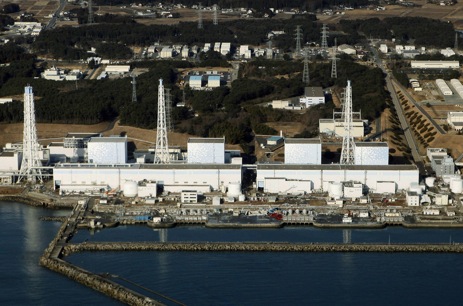After the Fukushima disaster, Japan launched a campaign to cut energy use. Businessmen wore relatively skimpy outfits to the office, turned off lights, abstained from air conditioning. But despite those energy efficiency efforts, carbon emissions still went up after the nuclear plant shut down. Aw hell — hot dark rooms full of scantily clad people aren’t the future of sustainability?
According to a new report from the Breakthrough Institute (which is generally skeptical of energy efficiency and cool with nuclear power), Japan produced 4 percent more carbon dioxide this November than last, and the overall carbon intensity increased, as this graph shows:
The data indicate that when a nuclear plant goes unexpectedly offline and coal and oil take over, energy efficiency alone can’t make up the difference in carbon emissions. With more planning or without coal in the mix, could energy efficiency play a bigger role? Unclear. But Japan’s overall emissions would have been even higher without the nearly 10 percent drop in energy demand, so energy efficiency efforts certainly didn’t hurt and definitely did keep emissions lower than they would have been otherwise.




